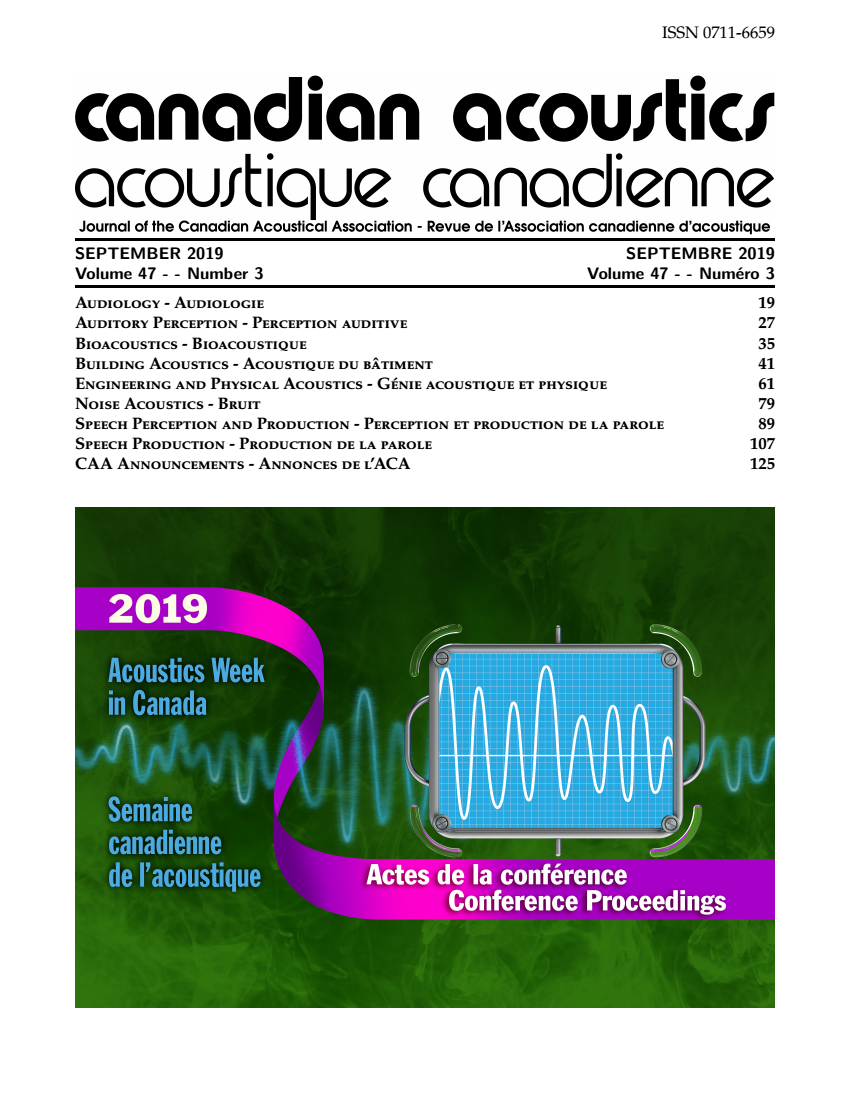An Acoustic Analysis Of Cannabis-Intoxicated Speech
Abstract
Speech from medicinal users of cannabis was compared before and after the consumption of cannabis to determine whether cannabis-intoxication produces salient acoustic correlates within the speech stream. Eight participants completed a variety of elicitation tasks (reading, interviews, storyboards, sustained vowel phonation) before and after the consumption of cannabis. Measurements of voice-onset time (VOT), prosodic trajectory, and acoustic quality (jitter / shimmer) suggest that cannabis-intoxication results in a distinct acoustic profile. Intoxicated speech was characterized by significant and substantial increases to the variability of VOT, altered prosodic expression (reduced range and flatter trajectories), and decreased shimmer. These findings have implications for the utility of automatic detection methods in distinguishing cannabis-intoxication from the speech stream, which may be useful for medical or legal purposes. Furthermore, these findings may provide insight into the psychological and physiological effects of cannabis intoxication.
Additional Files
Published
How to Cite
Issue
Section
License
Author Licensing Addendum
This Licensing Addendum ("Addendum") is entered into between the undersigned Author(s) and Canadian Acoustics journal published by the Canadian Acoustical Association (hereinafter referred to as the "Publisher"). The Author(s) and the Publisher agree as follows:
-
Retained Rights: The Author(s) retain(s) the following rights:
- The right to reproduce, distribute, and publicly display the Work on the Author's personal website or the website of the Author's institution.
- The right to use the Work in the Author's teaching activities and presentations.
- The right to include the Work in a compilation for the Author's personal use, not for sale.
-
Grant of License: The Author(s) grant(s) to the Publisher a worldwide exclusive license to publish, reproduce, distribute, and display the Work in Canadian Acoustics and any other formats and media deemed appropriate by the Publisher.
-
Attribution: The Publisher agrees to include proper attribution to the Author(s) in all publications and reproductions of the Work.
-
No Conflict: This Addendum is intended to be in harmony with, and not in conflict with, the terms and conditions of the original agreement entered into between the Author(s) and the Publisher.
-
Copyright Clause: Copyright on articles is held by the Author(s). The corresponding Author has the right to grant on behalf of all Authors and does grant on behalf of all Authors, a worldwide exclusive license to the Publisher and its licensees in perpetuity, in all forms, formats, and media (whether known now or created in the future), including but not limited to the rights to publish, reproduce, distribute, display, store, translate, create adaptations, reprints, include within collections, and create summaries, extracts, and/or abstracts of the Contribution.


